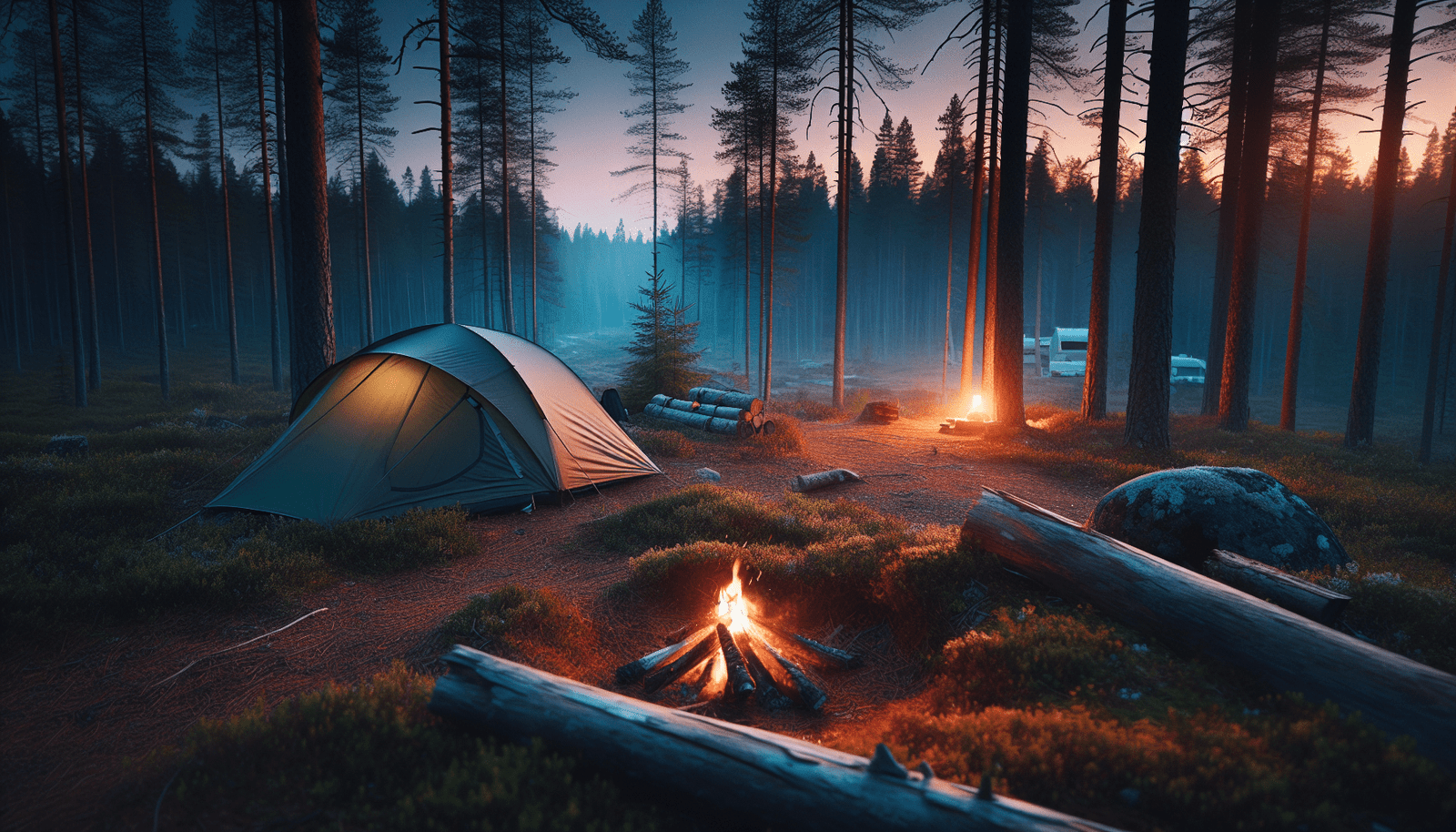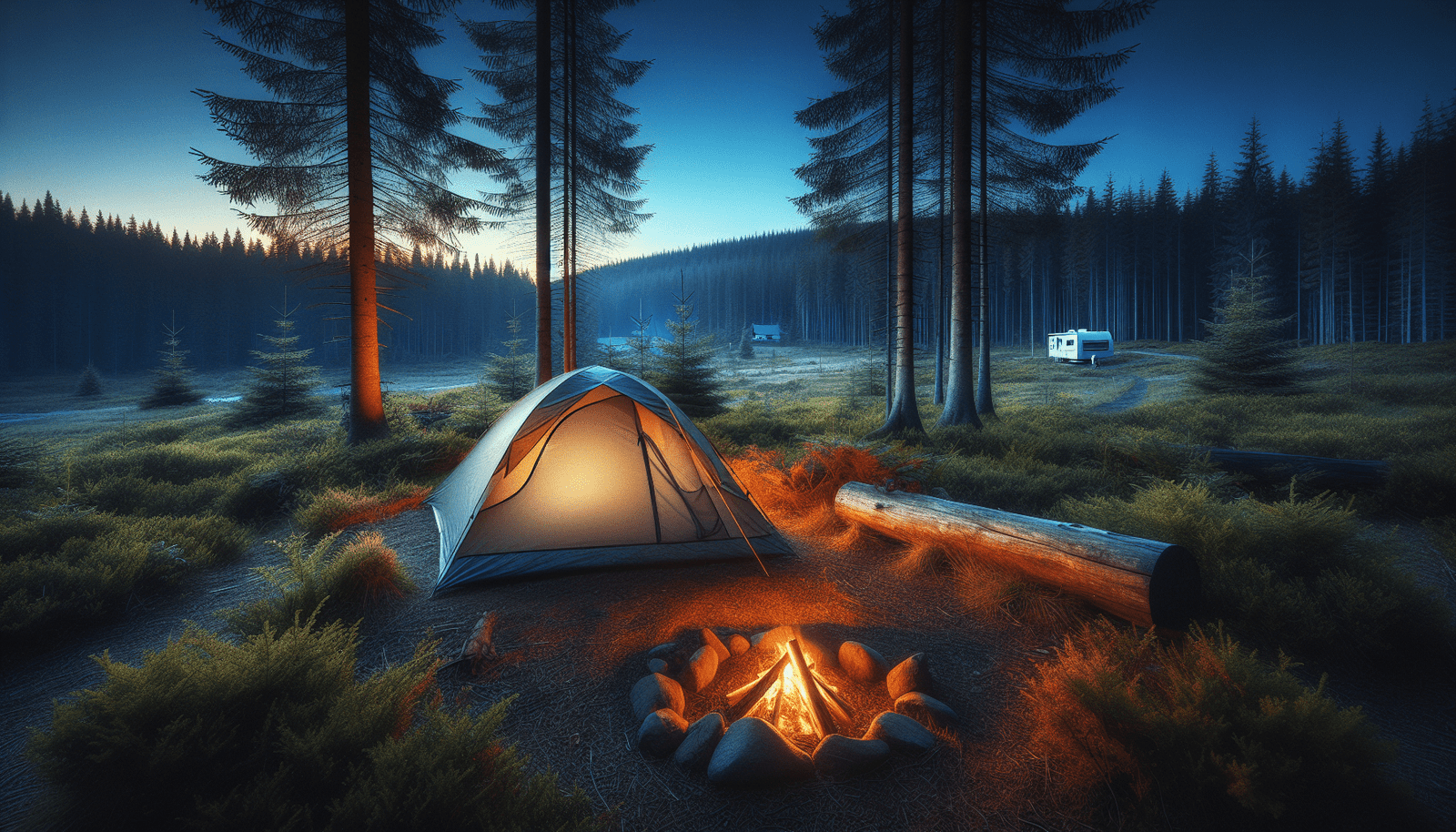You’re someone who enjoys the great outdoors and all that nature has to offer, so understanding the nuances of various camping styles is crucial. You’re probably wondering if dry camping is the same as tent camping. While they might sound similar at a glance, each offers unique experiences and challenges that you’ll want to know about before planning your next adventure. In this article, you’ll discover the key differences between dry camping and tent camping, helping you decide which is the best fit for your outdoor escapades. Have you ever wondered whether dry camping is the same as tent camping? It’s a common question that many outdoor enthusiasts and newcomers to the camping world ask. Today, we’re going to dive into this topic and explore the ins and outs of both camping styles, answering all your burning questions along the way. So, grab your favorite camping chair, and let’s get started!
What is Dry Camping?
Dry camping, also known as boondocking, is a type of camping where you stay in a location without access to water, electricity, or sewer hookups. Essentially, you’re camping “off the grid.” This style of camping is popular among RV owners who are looking to escape the crowds and explore more remote areas.
Pros of Dry Camping
- Peace and Solitude: Enjoy the quiet and serenity of nature without the hustle and bustle of crowded campgrounds.
- Cost-Effective: Since you’re not paying for hookups, dry camping can be a more affordable option.
- Adventure: Get closer to nature and explore off-the-beaten-path locations.
Cons of Dry Camping
- Resource Management: You’ll need to manage your water, waste, and power carefully.
- Limited Amenities: Without hookups, you won’t have the conveniences of a bathroom, kitchen, or power.
- Access: Sometimes, reaching these remote locations can be challenging, especially for larger RVs.
What is Tent Camping?
Tent camping is a more traditional style of camping that involves setting up a tent in a designated campground or in a backcountry area. This method allows you to fully immerse yourself in nature, often with minimal gear.
Pros of Tent Camping
- Closer to Nature: Enjoy a more intimate connection with the outdoors.
- Flexibility: You can set up your tent almost anywhere, making it a versatile option.
- Cost-Effective: Generally, tent camping is less expensive than RV camping.
Cons of Tent Camping
- Exposure: You’re more exposed to the elements and wildlife.
- Comfort: Tents can be less comfortable than RVs, especially in adverse weather conditions.
- Limited Space: Space can be a constraint for storing gear and essentials.

Comparing Dry Camping and Tent Camping
Let’s break down the differences and similarities between dry camping and tent camping. This comparison will give you a clearer picture of what to expect from each camping style.
| Aspect | Dry Camping | Tent Camping |
|---|---|---|
| Utilities | No water, electricity, or plumbing. | No hookups, but minimal utilities required. |
| Comfort | Generally more comfortable due to RV amenities. | Less comfortable and more exposed to elements. |
| Location Flexibility | Limited by RV size and terrain. | Highly flexible; tents can be set up almost anywhere. |
| Cost | Free or low cost, but initial RV investment is high. | Generally low cost with minimal gear investment. |
| Setup Time | Quick setup for RVs, but finding a level spot can take time. | Varies; can be quick or time-consuming based on gear. |
Preparing for Your Camping Trip
Whether you choose dry camping or tent camping, preparation is key. Let’s walk through some essential tips for both types of camping to ensure a smooth and enjoyable trip.
Dry Camping Preparation
- Plan Your Water Supply: Bring enough water for drinking, cooking, and cleaning. Consider investing in portable water containers or a water filtration system.
- Power Management: Use solar panels, generators, or RV batteries to maintain power. Be mindful of your power usage.
- Waste Disposal: Have a plan for dealing with waste. Use portable toilets or follow Leave No Trace principles for waste management.
- Emergency Gear: Always have an emergency kit with first aid supplies, tools, and communication devices.
- Maps and Navigation: Bring physical maps and GPS devices. Cell service may be unreliable in remote areas.
Tent Camping Preparation
- Choose the Right Tent: Ensure your tent is suitable for the weather conditions you’ll be facing. Four-season tents are ideal for all conditions, but they can be heavier.
- Pack Efficiently: Plan your meals and pack lightweight, essential gear. Consider using a backpack to carry your gear if you’re hiking to your campsite.
- Stay Warm and Dry: Bring appropriate clothing and sleeping gear for warmth. A high-quality sleeping bag and insulating pad are crucial.
- Safety First: Be aware of wildlife in the area and store food properly to avoid attracting animals.
- Navigation Tools: Have a map, compass, or GPS device. Mark your campsite location and nearby trails.

Environmental Impact
Both dry camping and tent camping can have an impact on the environment, and it’s important to practice eco-friendly camping habits.
Leave No Trace Principles
- Plan Ahead and Prepare: Know the regulations and special concerns for the area you’ll visit.
- Travel and Camp on Durable Surfaces: Stick to established trails and campsites.
- Dispose of Waste Properly: Pack it in, pack it out. Leave your campsite cleaner than you found it.
- Leave What You Find: Preserve the past; don’t take rocks, plants, or cultural artifacts.
- Minimize Campfire Impact: Use a camp stove for cooking and re-consider the need for a campfire.
- Respect Wildlife: Observe from a distance and do not feed animals.
- Be Considerate of Other Visitors: Respect other campers and the quality of their experience.
Choosing the Right Gear
Choosing the appropriate gear can make a world of difference whether you’re dry camping in an RV or setting up a tent in the wilderness.
Essential Gear for Dry Camping
- Portable Water Containers: For storing and transporting water.
- Solar Panels/Generator: To keep your power supply going.
- Portable Toilet: For waste management.
- Cooking Gear: Portable stove, pots, pans, and utensils.
- Navigation Tools: GPS, maps, and a reliable compass.
Essential Gear for Tent Camping
- Tent and Ground Tarp: A durable tent and waterproof tarp are essential.
- Sleeping Bag and Pad: For comfort and warmth.
- Portable Stove: For cooking meals.
- Backpack: For carrying gear if hiking to your campsite.
- First Aid Kit: Always have a well-stocked first aid kit.
Camping Safety Tips
Safety should always be a priority when you’re out in nature. Here are some tips to keep you safe during your camping adventure.
Safety Tips for Dry Camping
- Stay Informed: Know the weather forecast and road conditions.
- Emergency Contacts: Have a list of emergency contacts and nearby emergency services.
- Tool Kit: Carry a tool kit for any repairs or emergencies.
- Wildlife Awareness: Know the local wildlife and how to keep them at bay.
- Communication Devices: Have a cell phone, satellite phone, or another form of communication.
Safety Tips for Tent Camping
- Check the Weather: Be prepared for any weather changes.
- Inform Someone: Let someone know your plans and expected return time.
- Food Storage: Store food in bear-proof containers or hang it from a tree.
- Proper Footwear: Wear sturdy hiking boots and carry an extra pair of socks.
- Emergency Whistle: Have a whistle or signaling device in case you need to attract attention.
Making the Most of Your Camping Experience
Whether you’re dry camping or tent camping, there are plenty of activities to enjoy and appreciate the beauty of nature.
Outdoor Activities
- Hiking: Explore nearby trails and enjoy scenic views.
- Fishing: If you’re near a lake or river, consider fishing.
- Stargazing: With little to no light pollution, enjoy the night sky.
- Wildlife Photography: Capture the beauty of the local fauna and flora.
- Campfire Stories: Share stories and experiences around a campfire.
Relaxation Techniques
- Meditation: Practice mindfulness and enjoy the peace and quiet.
- Reading: Bring a good book to enjoy in a tranquil setting.
- Yoga: Practice yoga to stretch and relax your muscles.
- Journaling: Capture your thoughts and experiences in a journal.
- Listening to Nature: Simply sit back and listen to the sounds of the wilderness.
Conclusion
So, is dry camping the same as tent camping? The simple answer is – not quite. While both offer unique and enjoyable ways to connect with nature and escape from everyday life, they cater to different preferences and requirements.
Dry camping is typically associated with RVs and comes with an array of challenges and conveniences that suit those who prefer some home comforts while exploring remote areas. On the other hand, tent camping offers an intimate and immersive experience that allows you to literally sleep under the stars and be one with the wilderness.
Ultimately, the choice between dry camping and tent camping boils down to your personal preference, comfort level, and the type of adventure you’re seeking. Armed with the information shared in this article, you can now confidently decide which camping style is your perfect fit and start planning your next outdoor adventure. Happy camping!
